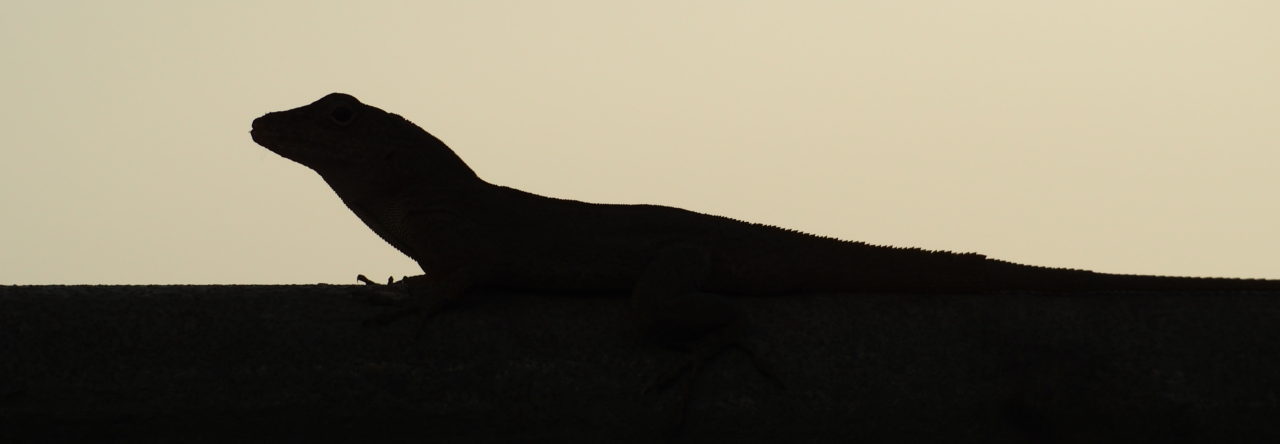Leah Elkhoury, an undergraduate student in the Fokidis Lab at Rollins College, investigated whether access to food would increase agonistic behaviors in the notoriously aggressive brown anole. First, to see if fasting would affect brown anole aggression, she tested wild caught brown anoles by feeding control lizards a regular diet and fasting treatment lizards for either 24, 48, or 72 hours. The treated anoles were then size-matched with a control lizard and placed in an enclosure, where their agonistic displays were recorded and analyzed. The results of that portion of the experiment indicated that fasting does not increase agonistic behavior.
Next, lizards were separated into two groups: one with predictable feeding schedules, and one with a randomized feeding schedule for one month. This lizards then were tested for aggression in a similar way to the first experiment. The anoles were then sacrificed, and their blood was tested for stress steroid, fat mobilization, and fat deposition. Their brains were then collected and regionally divided to in order to measure stress steroid. Interestingly, lizards in the unpredictable feeding group exhibited more dewlap flashes, one of the brown anole’s agonistic behaviors. They also showed an increase in fat deposition and plasma corticosterone (stress steroid). Though there were no differences in corticosterone between brain regions.
These exciting results show the “choices” brown anoles make about energy allocation under stress, and Leah plans to continue to ask questions about the link between feeding and aggression. We can’t wait to hear about her work in the future!



Skip Lazell
Yes! More: keep going on this! Skip